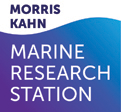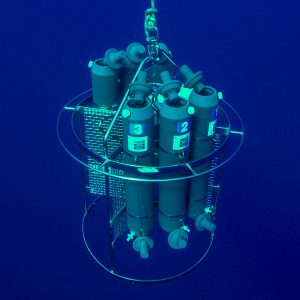 In our screening program, we plan to continue an essential, novel study concerning pathogen emergence and disease transmission between aquatic animals in our region of the Mediterranean Sea. Through the use of cutting-edge technologies, these studies are expected to generate original knowledge about marine biology, We intend to continue examining tissue samples of key top predators on the Israeli Mediterranean coast: sharks for levels of trace elements (Hg, Cd, Pb, Cu, Mn, Zn, Fe) and basic nutritional values (TVB-N, TBA, crude protein, crude fat and crude ash), and cetaceans (dolphins) for the distemper virus and the influenza virus. We will also continue a second ongoing study on the herpes virus and nodavirus infection in sea turtles. For these projects, more advanced molecular methods such as new virus discovery and metagenomics will be evaluated and implemented.
In our screening program, we plan to continue an essential, novel study concerning pathogen emergence and disease transmission between aquatic animals in our region of the Mediterranean Sea. Through the use of cutting-edge technologies, these studies are expected to generate original knowledge about marine biology, We intend to continue examining tissue samples of key top predators on the Israeli Mediterranean coast: sharks for levels of trace elements (Hg, Cd, Pb, Cu, Mn, Zn, Fe) and basic nutritional values (TVB-N, TBA, crude protein, crude fat and crude ash), and cetaceans (dolphins) for the distemper virus and the influenza virus. We will also continue a second ongoing study on the herpes virus and nodavirus infection in sea turtles. For these projects, more advanced molecular methods such as new virus discovery and metagenomics will be evaluated and implemented.
While also relating to marine ecology and public health issues. We will examine pathogen transmission in the ocean by routinely collecting marine fish and shellfish from various locations along Israel’s Mediterranean coast, and the offshore finfish aquaculture farms. Necropsy will be performed on each of the animals, including general pathology inspection, parasitological examination and tissue collection. Molecular screening of animal tissue will be used to detect selected pathogens. Data collection over a period of three years will enable us to assess the health status of selected marine fish species, and the results will be used to demonstrate the potential for the transmission of viruses from wild fish to farmed fish and vice versa.
Subsequently, we expect to have a sound perspective of flagship marine animal health status in our region in the near future. We strongly believe that this will lead to an improved understanding of the origins and spread of viruses in aquaculture and will assist us to better understand the fine tuning of the molecular basis of fish viruses.





